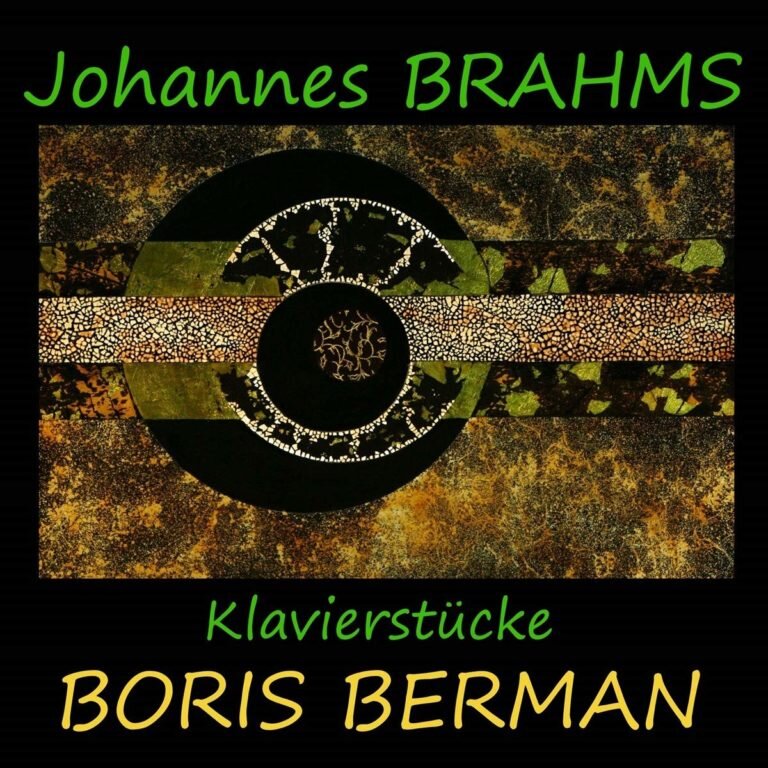Review by Xavier Rivera, Crescendo Magazine, Belgium
Johannes BRAHMS (1833-1897) : Klavierstücke Eight pieces for piano Op. 76 ; Two Rhapsodies Op. 79 ; Seven pieces for piano Op. 116; Three Intermezzi Op. 117 ; Six pieces for piano Op. 118 ; Four pieces for piano Op. 119. Boris Berman, piano 2018. Booklet in French and English. 100' 48 ''
2 CD Le Palais des Dégustateurs PDD018
Boris Berman does not share much beyond his name and his profession with his compatriot, the very famous Lazar. Beyond that, one could speak of the Russian school yes, but… it would be difficult to find two personalities more diametrically opposed than those of these two great artists. Where with Lazar there is ardor, fireworks, passion, or the exhibition of virtuosity, Boris offers us reflection, elegance, and a depth of thought. He is not of these artists that seduce from the beginning. However, he wins by being listened to at length, in calm, and with the introspection to which we succumb to during these days of confinement. His trajectory itself is unusual for a Russian virtuoso: studies with Lev Oborin […], but also studies of harpsichord and sustained activity in contemporary music. Denisov, Schnittke, Ligeti, or Stockhausen, all find in [Boris Berman] a fervent defender and an early champion in Russia. He has also developed a great activity as a pedagogue and chamber musician: many great artists have had the privilege of collaborating with him and he offers advice to students all over the wide world. His mastery of the keyboard is absolute, both in the clarity of the execution and in the control of the sound, with a sense of legato so perfect that it makes us completely forget the natural evanescence of the sound of the instrument. And we must thank him for his transparent and limpid use of the pedal which can evoke, through the Steinway used here, the lightness of Brahms’ Streicher piano.
His approach to this composer is sober; he avoids indulging in pathos or grandiloquence. This certainly does not imply coldness, however: the fact of reflecting on each detail of the phrasing and of ensuring the architectural balance of the works does not prevent it from being expressive and warm as desired. Like a stage director, Berman offers us a subtle gradation in the sentimental landscape from this Unruhig bewegt, the anxious movement of Capriccio in F sharp op. 76 born from a tormented encounter with Clara Schumann, through the reminiscences of Vienna of Capriccio in B Minor or Intermezzo no 3 of the same opus, arriving at a fabulous Op. 119, miraculous ecstasy in Intermezzo in B Minor, or achieving apotheosis in the Rhapsody in E flat, which marks the end of the CD and of the piano repertoire of Brahms. Robert Schumann said of Brahms: “as soon as he sits at the piano, he takes us to wonderful regions, making us enter with him an ideal world.” Impossible to find a better definition of Boris Berman’s version!
Our only regret, in the sound of the recording, is a certain lack of transparency in the middle register of the piano that sometimes harms the clarity of the melodic contours, while the extreme registers are well rendered. Excellent booklet in English/French with a very erudite essay written by Paul Berry.
Sound: 7 – Booklet: 9 – Repertoire: 10 – Interpretation: 10
» View original review in Crescendo Magazine

